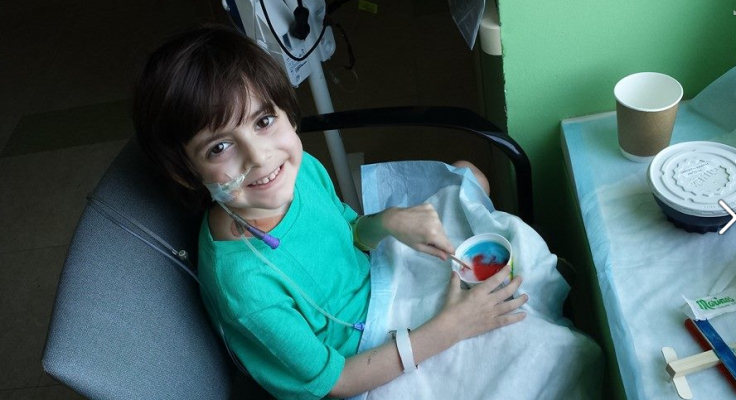4-Year-Old Jacob LaRose Survives His Battle With E.Coli Against All Odds After 'His Body Basically Crashed'

Jacob LaRose started prekindergarten this past Monday, just like most 4-year-olds throughout the tri-state area. Unlike most 4-year-olds, Jacob’s spring and summer were not spent at the park or in the pool. Instead, he spent the majority of the past couple of months clinging to life at the Pediatric Intensive Care Unit at the Komansky Center for Children's Health at New York-Presbyterian/Weill Cornell Medical Center after contracting a dangerous strain of E. Coli that resulted in a potentially fatal complication known as hemolytic uremic syndrome (HUS).
"Taking care of Jake really required amazing team coordination and support and the credit is really in the effective team approach of his care," Dr. Nitsana Spigland, the Komansky Center’s chief of pediatric surgery, told the NY Daily News. "Everyone had daily debriefings to put together all of our heads to manage him in the most effective way."
Although the LaRose family is unsure how exactly Jacob was introduced E. Coli O157:H7, his doctors said it is usually caused by consuming undercooked meat. Jacob was initially treated at Valley Hospital in Ridgewood, N.J., but was moved to the Komansky Center three days later due to the discovery of HUS, which caused his kidneys to fail.
According to the National Institute of Diabetes and Digestive and Kidney Disease, HUS is a disease that destroys red blood cells and is considered the most common cause of short-term acute kidney failure in children. It develops when E. Coli bacteria becomes lodged in the digestive tract and makes toxins that enter the bloodstream to destroy red blood cells. Colon perforation, a rare but dangerous complication of HUS, occurs in around one to two percent of HUS cases and, unfortunately, Jacob was one of them.
After 10 days at the Komansky Center, Jacob’s condition took a turn for the worse as his systems began to crash and his body went into shock. Following intubation, doctors discovered that E. Coli had eaten away 75 percent of his colon and caused three holes in his bowels. Doctors called for an emergency surgery and discovered that his abdomen was filled with stool. Spigland and her colleagues cleared as much as they could and brought Jacob back to the ICU to be stabilized. For the next couple of hours, Jacob would have to fight to save his own life.
Against all odds, Jacob survived the night and doctors were finally able to clear his abdomen after three more surgeries. He was released from the hospital on Memorial Day Weekend to spend time with his family, but was readmitted in June for surgery to attach his small intestine and rectum. Three weeks later on July 11, Jacob left the hospital healthy and strong enough to go out and enjoy what was left of his summer.
Today, Jacob and his family have put their nightmarish ordeal behind them while he enjoys his new experiences in preschool like any other healthy 4-year-old.
Published by Medicaldaily.com



























